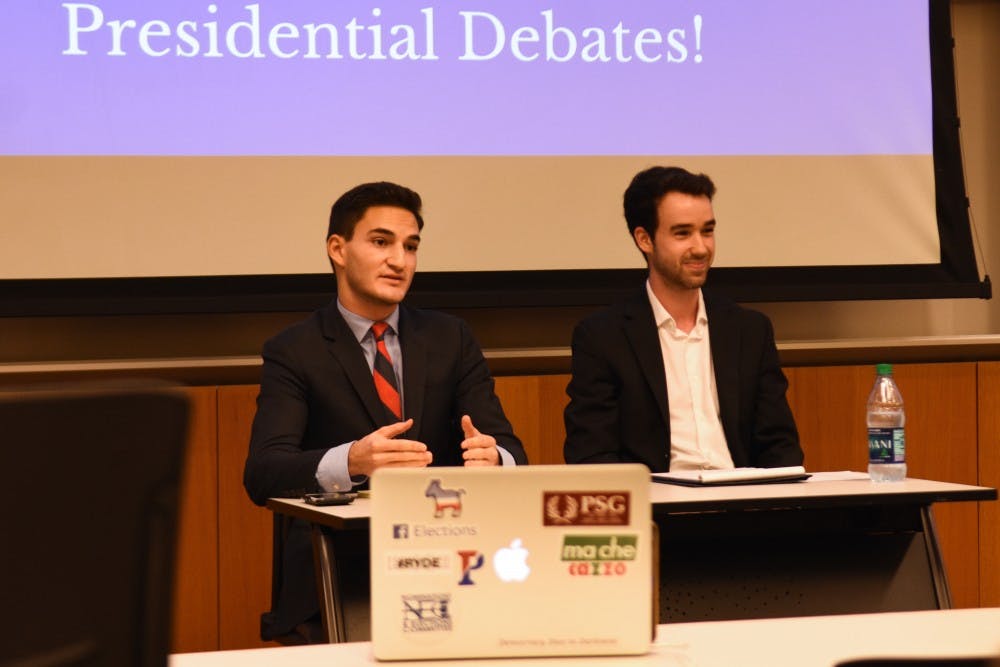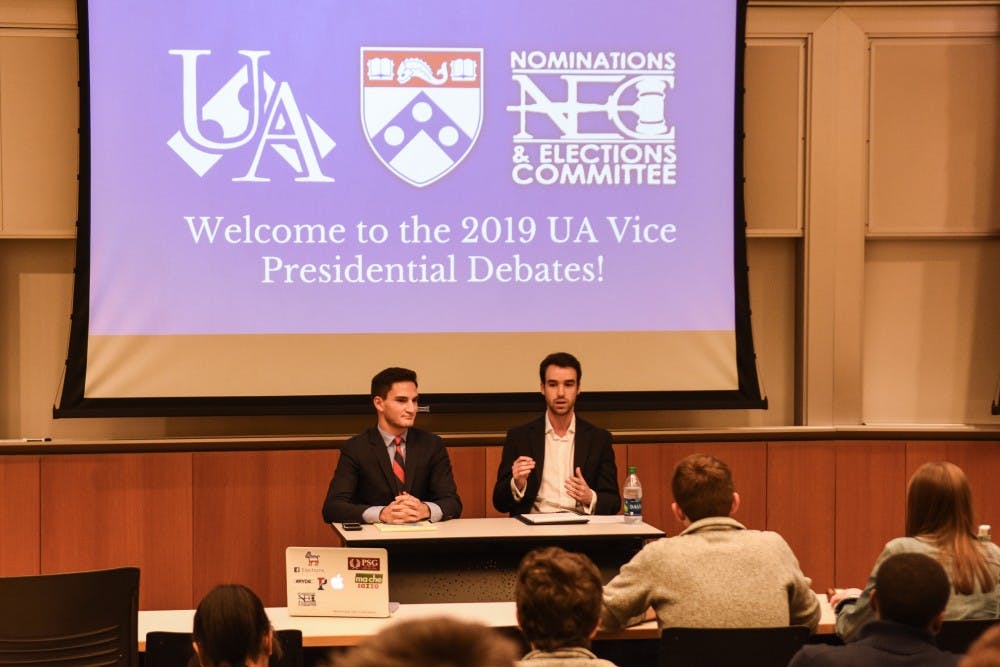
Chase Serota (left) and Brian Goldstein (right) are the two candidates running for Vice President of the UA.
Credit: Eliud VargasThe candidates running for Vice President of the Undergraduate Assembly — College junior Brian Goldstein and College sophomore Chase Serota — debated Tuesday night over their policy ideas and qualifications to serve as VP.
Mirroring the previous night's presidential debate, the candidates agreed on broad policy goals but diverged on whether or not prior experience on the UA executive board is necessary to execute the responsibilities of vice president. Goldstein is running alongside presidential candidate Natasha Menon, while Serota is running with Maria Curry.
Goldstein said his two years on the UA executive board — first as secretary and now as speaker — have prepared him to serve as the assembly’s vice president, adding that he has worked closely with two former vice presidents and gained insight into the responsibilities of the role.
Serota, a UA College representative, countered by saying that the UA executive board could benefit from a fresh outsider perspective. A large aspect of his campaign is his promise to “challenge the status quo," Serota said.
One of the primary responsibilities of the UA vice president is to oversee UA Steering meetings, which connect the UA with 41 undergraduate organizations to promote collaboration, inform the student body of other student initiatives, and to gauge the temperature of the student body.
Goldstein said as a member of the UA’s executive board, he attended all UA Steering meetings for the past two years.
“It’s hard to lead those meetings if you haven’t attended them,” Goldstein said.
Pushing back, Serota said he has elicited feedback from UA Steering constituent groups and believes that the meetings should be more about action and less about discussion.
A main point of discussion during the debate was the candidates' differences in UA experience; Goldstein has been on the UA executive board for two years, while Serota has been a college representative for one year.
“Something we’ve heard is frustration with just having a lot of discussions in UA Steering, and leaving meetings being frustrated that there’s not really a plan in place to deal with those frustrations,” Serota said.
Throughout the debate, both candidates addressed the lack of UA collaboration with individual student groups, pledging to improve communication between these groups and student government to more effectively relay their concerns to administration.
Both vice presidential candidates agreed that student groups are in need of more space to meet on campus — Goldstein said performing arts groups require more rehearsal space, while Serota said the Medical Emergency Response Team could also benefit from access to greater facilities.
Goldstein and Serota also emphasized the need for more personalized pre-major advising, increased UA collaboration with the Graduate and Professional Students Assembly, and improved quality of college housing in the wake of the policy requiring sophomores to live on campus starting in 2021.
The debate was hosted by the Nominations and Elections Committee, who also held a second presidential debate prior to the vice presidential debate. At the second debate, Menon and Curry both called on the University to divest from fossil fuels and to increase its outreach to West Philadelphia schools.
The voting period, which opened Monday at 12 a.m., will close this Thursday at 5 p.m. The results will be announced at 9 p.m. Thursday evening.
The Daily Pennsylvanian is an independent, student-run newspaper. Please consider making a donation to support the coverage that shapes the University. Your generosity ensures a future of strong journalism at Penn.
Donate



